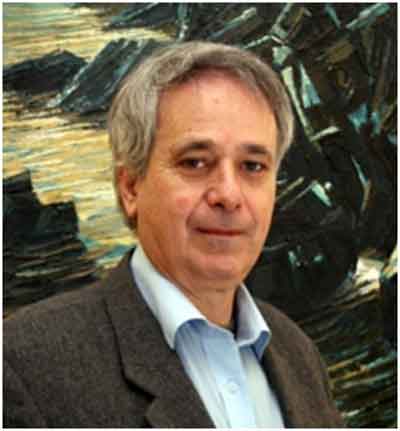Thank Goodness Ilan Pappe is no Longer Alone on the Barricades

Haaretz, the liberal Zionist Israeli newspaper, along with much of the world, has come a long way since the advent of the BDS movement on the international political scene, and since it ridiculed historian Ilan Pappe in a 2005 story titled “Alone on the Barricades.”
At the time, Pappe (who is no longer alone on the barricades) was experiencing a backlash in Israel that cost him his job as a tenured professor at Haifa University. He stood behind the work of an MA student (Teddy Katz) who had “proved,” as though this historical fact was in dispute by anyone other than the Zionist establishment and its agents, that a Jewish brigade had perpetrated a massacre of Palestinian villagers in Tantura in 1948. His other sin was to publicly support a general boycott of Israeli academia for their acceptance of the Israeli government’s occupation policy.
By exposing facts about massacres and other crimes against Palestinians long denied by the Zionist state, by Israeli Jews generally and by the Zionist network worldwide, Haaretz shows no signs of being spiritually shattered by the history it is now revising. Its policy seems to be partly Mea Culpa (regarding a sin confessed as half forgiven), and partly Zionist strategy to resist decolonization by “owning” the issue. Ilan Pappe put it this way in a comment on Facebook:
“I am afraid this is an attempt to own the criticism as well as the act itself, so that Haaretz and not Palestinians would decide how to deal with this. And like all liberal colonialists around the world, they believe that confess, apologize and saying sorry is a closure — while we know that only proper decolonization of all of historical Palestine and the right of return is a closure.”
Haaretz is like Gerontion in T. S. Eliot’s poem, giving us the readers the sense that Israelis are objects upon whom history acts. At the same time, however, we know they are subjects who interpret and therefore create history. Through such reports, Haaretz (like Gerontion) projects a sense of loss in confidence in reality as received via the Zionist gospel.
But we can’t say that Haaretz no longer believes in Zionist history (aka “narrative”). We cannot say that it is no longer imbued with the Jewish supremacist Zionist ideals and social constructs that are the foundation of the Zionist Jewish state. We are compelled to ask: After such knowledge, what forgiveness?
The English translation of the article by Israeli historian Adam Raz appeared in Haaretz with the title: There’s a Mass Palestinian Grave at a Popular Israeli Beach, Veterans Confess: The Israeli veterans of the 1948 battle at Tantura village finally come clean about the mass killing of Arabs that took place after the village’s surrender.
The first dramatic paragraph contains the following rhetorical question by a witness whom Raz calls a former “combat soldier,” who is described as “trying to be spare with his words.” He is quoted as saying (italics mine):
“They silenced it… It mustn’t be told; it could cause a whole scandal. I don’t want to talk about it, but it happened. What can you do? It happened.”
That it happened is not news, at least not to Palestinians and not to any well-read person. What can you do about it? Plenty.
In a post on Facebook reacting to Raz’s latest revelation in Haaretz and recalling his experience in 2007 with the Israeli Ministry of Education and his forced resignation from Haifa University, Pappe says:
“We do not need Haaretz to tell us that the Nakba was an Israeli crime against humanity, but it is an important development. When will the western academia and media stop denying the Nakba? When will we have an international alliance against Nakba denial?
Hopefully soon!!!”
We need an international alliance to bring these crimes against humanity to the International Criminal Court; we need to be in solidarity with the Palestinian long-standing and ongoing struggle for liberation, we need to decolonize Palestine by bringing an end to the Zionist Jewish state in Palestine from the river to the sea. We need a Masar Badil: Palestinian Alternative Revolutionary Path Movement.
We can and will do all these things about it.
___________________________
Rima Najjar is a Palestinian whose father’s side of the family comes from the forcibly depopulated village of Lifta on the western outskirts of Jerusalem and whose mother’s side of the family is from Ijzim, south of Haifa. She is an activist, researcher and retired professor of English literature, Al-Quds University, occupied West Bank.
https://countercurrents.org/2022/01/thank-goodness-ilan-pappe-is-no-longer-alone-on-the-barricades/

0 Comments:
Post a Comment
Subscribe to Post Comments [Atom]
<< Home